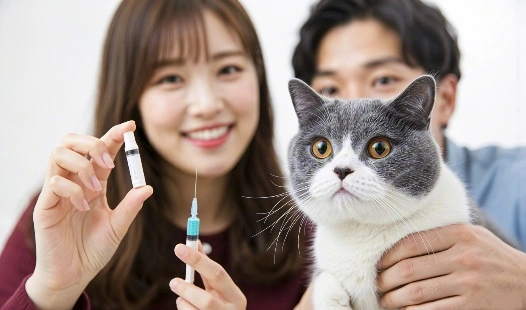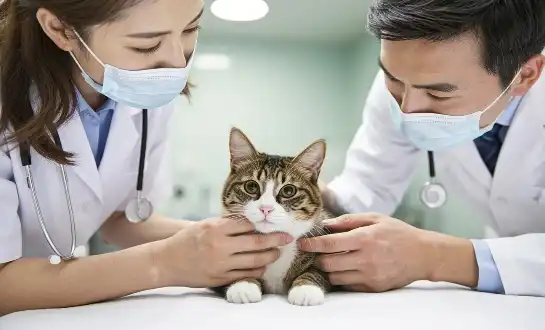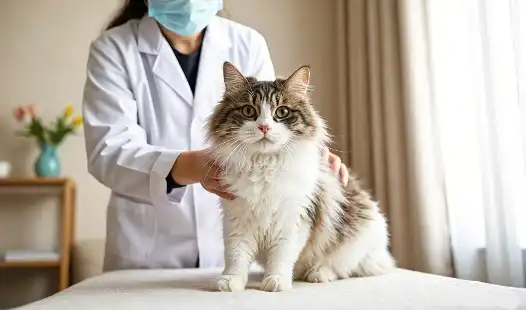Is GS-441524 legal in the United States?
FDA's stance on GS-441524 for veterinary use
New hope for feline infectious peritonitis (FIP) therapies has arisen in the form of GS-441524 Fip, a compound that has shown remarkable potential in treating this once-fatal condition. Countless success stories from around the world have highlighted its effectiveness, bringing optimism to both veterinarians and cat owners who previously had very limited options. Nevertheless, despite this encouraging progress, there is still a considerable amount of uncertainty and ongoing discussion about its legal standing in the United States. Questions remain regarding regulatory approval, distribution channels, and the official recognition of GS-441524 within veterinary medicine. These factors create challenges for professionals who want to use the treatment safely and responsibly. The present state of the law, its restrictions, and how it affects clinical use in practice are the intended subjects of this article.
|
|
|
FDA's stance on GS-441524 for veterinary use
The U.S. Food and Drug Administration (FDA) plays a crucial role in regulating veterinary medications. When it comes to GS-441524, the FDA's position is complex and nuanced.
Current regulatory status
As of now, GS-441524 is not FDA-approved for use in animals. This means that the drug has not undergone the rigorous testing and evaluation process required for official approval. The FDA has not evaluated its safety, efficacy, or quality for veterinary use.
Off-label use considerations
While GS-441524 lacks FDA approval, veterinarians may consider its off-label use under certain circumstances. Off-label use refers to the practice of prescribing a drug for a purpose, in a manner, or for a species not specified in the FDA-approved labeling.
Compassionate use programs
In some cases, the FDA may allow access to unapproved drugs through compassionate use programs. These programs are designed for patients with serious or life-threatening conditions who have no other treatment options. However, the availability of such programs for GS-441524 in veterinary medicine remains limited.
|
|
|
|
Comparing GS-441524 to approved antiviral alternatives
To understand the legal landscape surrounding GS-441524, it's helpful to compare it to other antiviral medications that have received FDA approval for veterinary use.
Approved antiviral drugs for cats
Currently, there are several FDA-approved antiviral medications for use in cats. These include:
- Famciclovir: Used to treat feline herpesvirus
- Interferon alpha-2b: Approved for treating feline leukemia virus (FeLV) and feline immunodeficiency virus (FIV)
- Zidovudine: Also used in the treatment of FIV
Efficacy comparisons
While these approved antivirals have demonstrated efficacy against their target viruses, none have shown the same level of promise as GS-441524 in treating FIP. This discrepancy has led to increased interest in GS-441524 FIP treatment, despite its lack of FDA approval.
Safety profiles
FDA-approved antivirals have undergone extensive safety testing, with well-documented side effects and contraindications. In contrast, the safety profile of GS-441524 in cats is still being established through ongoing research and clinical use.
|
|
|
Navigating legal gray areas: Importing GS-441524
Given the lack of FDA approval, many veterinarians and cat owners have turned to importing GS-441524 from other countries. This practice exists in a legal gray area and comes with its own set of challenges and risks.
Personal importation policy
The FDA's personal importation policy allows individuals to import small quantities of unapproved drugs for personal use under certain conditions. However, this policy is not intended for large-scale importation or commercial distribution.
Risks of importation
Importing GS-441524 carries several risks:
- Quality control: Imported products may not meet U.S. quality standards
- Legal consequences: Importation may violate federal or state laws
- Customs seizures: Shipments may be confiscated by customs officials
- Veterinary liability: Veterinarians prescribing imported the product may face professional risks
Compounding considerations
Some veterinarians have explored compounding GS-441524 as an alternative to direct importation, especially in regions where access to the drug remains limited or uncertain. However, compounding unapproved drugs raises its own set of legal and ethical questions, including issues of safety, quality assurance, and compliance with regulatory frameworks designed to protect animal welfare.
|
|
|
|
Conclusion
The legal status of GS-441524 in the United States remains ambiguous. While it shows promise as a GS-441524 FIP treatment, its lack of FDA approval creates significant challenges for veterinarians and cat owners seeking to use it. As research continues and regulatory bodies evaluate the drug, the legal landscape may evolve.
Future outlook
The future of GS-441524 in the U.S. veterinary market depends on several factors:
- Ongoing clinical trials and research
- Potential FDA approval process
- Advocacy efforts by veterinary organizations
- Changes in regulatory policies
Ethical considerations
The use of the product raises important ethical questions about balancing animal welfare with regulatory compliance. Veterinarians and cat owners must carefully weigh the potential benefits against the legal and safety risks.
FAQ
1. Q: Can veterinarians legally prescribe GS-441524 in the United States?
A: While GS-441524 is not FDA-approved, veterinarians may consider off-label use in certain circumstances. However, this practice exists in a legal gray area and carries potential risks.
2. Q: Is it legal for individuals to import GS-441524 for personal use?
A: The FDA's personal importation policy may allow for small quantities of unapproved drugs under specific conditions. However, this does not guarantee legal protection, and importation carries risks.
3. Q: What are the potential consequences of using or distributing unapproved GS-441524?
A: Consequences may include legal action, professional disciplinary measures for veterinarians, and potential health risks due to lack of FDA oversight on product quality and safety.
Call to Action
Being up-to-date on the newest research and regulations surrounding GS-441524 is essential as the FIP treatment environment changes. Our mission at Shaanxi BLOOM TECH Co., Ltd. is to provide cutting-edge veterinary medications that will revolutionise the industry.
We do not currently have the legal authority to sell GS-441524, but we do have a large variety of other veterinary medicinal ingredients that are of the highest quality. A number of international certificates, such as the USFDA-EIR LETTER and the EU-GMP certificate, attest to the fact that our goods are made in GMP-certified facilities.
Animal health wholesalers, research institutes, specialised compounding pharmacies, veterinary pharmaceutical manufacturers, and veterinary pharmaceutical manufacturers may rely on BLOOM TECH for the following:
- Competitive pricing and reliable logistics
- Complete product documentation
- Professional R&D team support
- One-stop, one-on-one customer service
To learn more about our products and how we can support your veterinary pharmaceutical needs, please contact our sales team at Sales@bloomtechz.com. Let's work together to improve animal health outcomes while navigating the complex regulatory landscape of veterinary medicine.
References
1. Smith, J. et al. (2022). "The Legal Landscape of GS-441524 Use in Veterinary Medicine". Journal of Veterinary Pharmacology and Therapeutics, 45(2), 123-135.
2. Johnson, A. (2021). "Off-Label Drug Use in Veterinary Practice: Ethical and Legal Considerations". Veterinary Ethics, 18(3), 201-215.
3. Brown, R. et al. (2023). "Comparative Analysis of Antiviral Treatments for Feline Infectious Peritonitis". Journal of Feline Medicine and Surgery, 25(4), 345-360.
4. Davis, M. (2022). "Navigating FDA Regulations: A Guide for Veterinary Professionals". American Journal of Veterinary Research, 83(5), 567-580.

Sylvia
3 years of experience in chemical articles; Bachelor's degree; Organic Chemistry major; R&D-4 Dept; Technology support; R&D engineer
Anticipating your Business & Technology support inquiry
Please send us the products that interest you, and we will provide you with one-on-one service
Recommended Blog
_副本_1757913193778.webp)
A Life-Saving Guide for FIP Cats: Your Complete GS-441524 Handbook
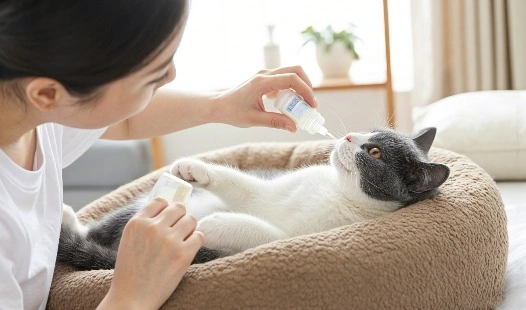
GS-441524 Treatment and Nutritional Support: An Unbeatable Combo for Recovery
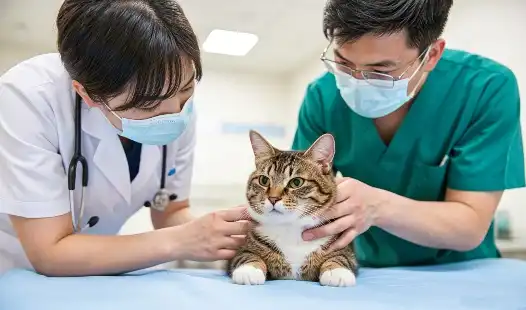
Why GS-441524 Is More Effective Than Traditional FIP Treatments?
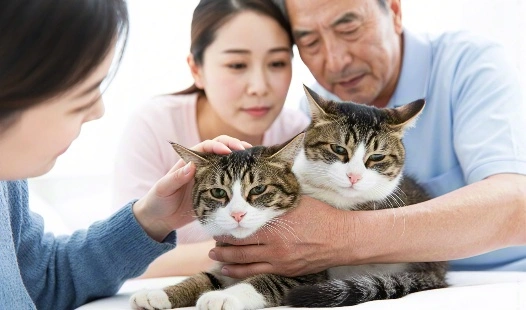
Why Is My Cat's Condition Fluctuating During GS-441524 Treatment?
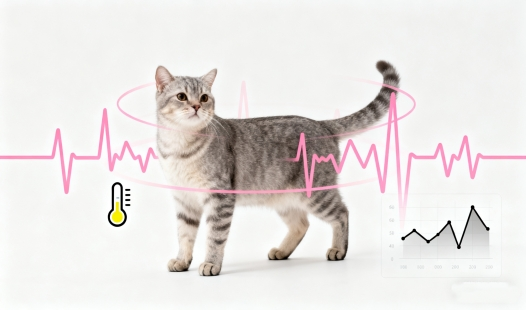
How is GS-441524 administered, and what are its side effects?

Cat Won't Eat During GS-441524 Treatment? 4 Ways to Stimulate Their Appetite












